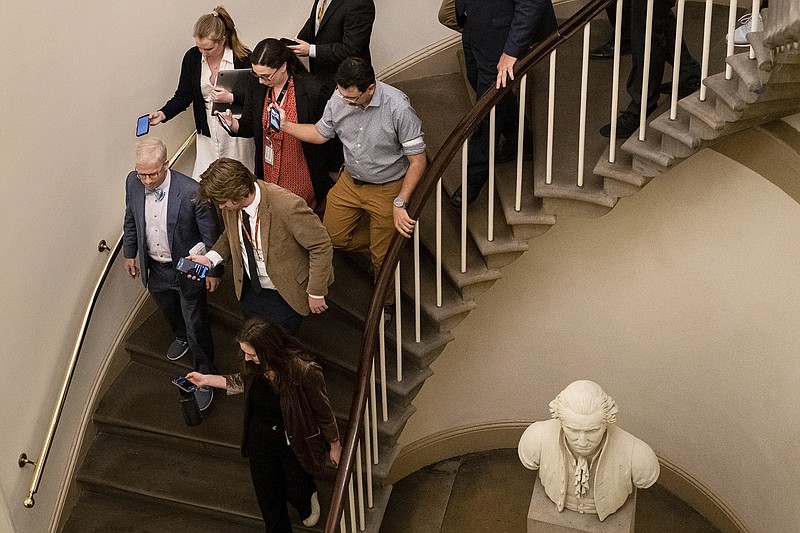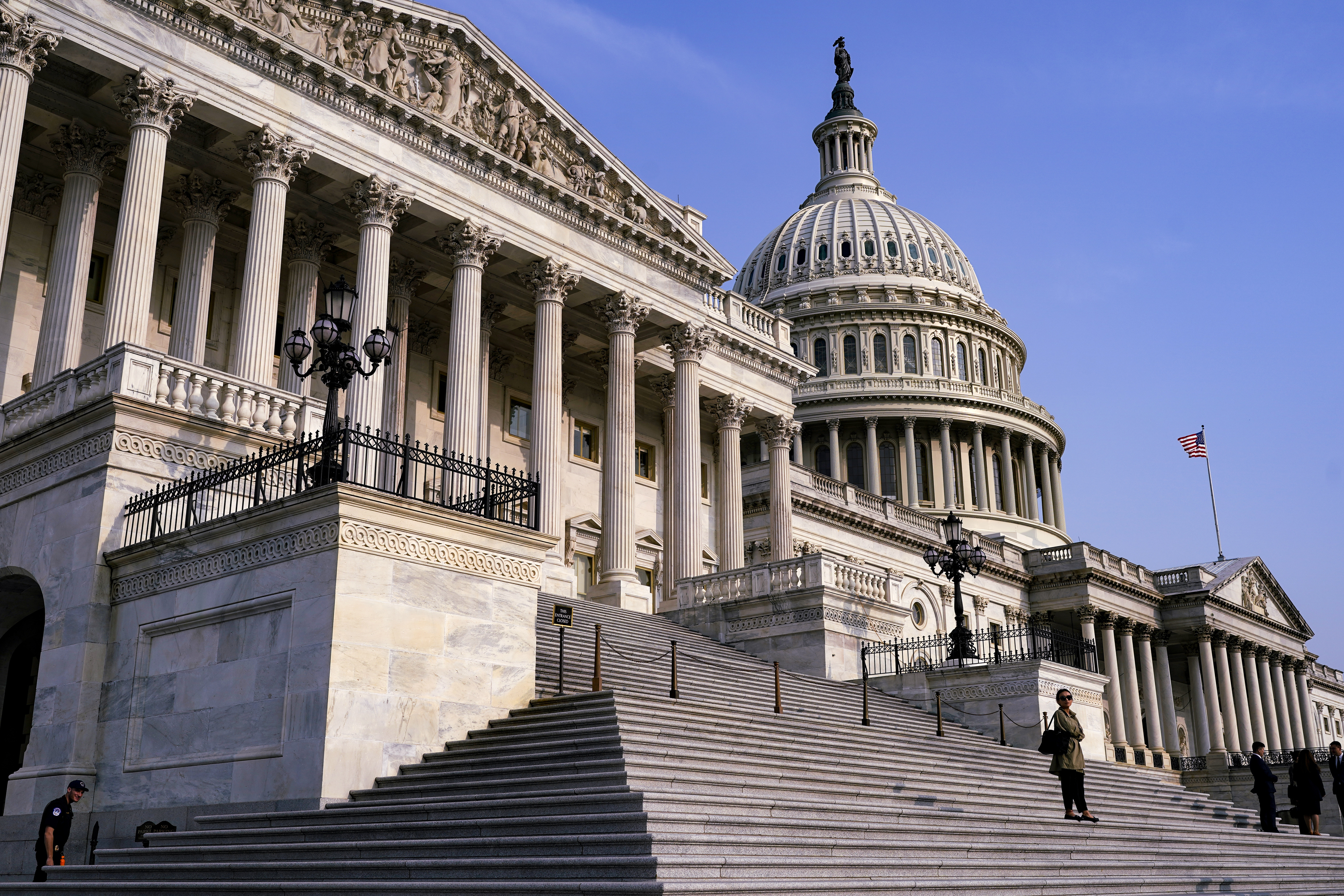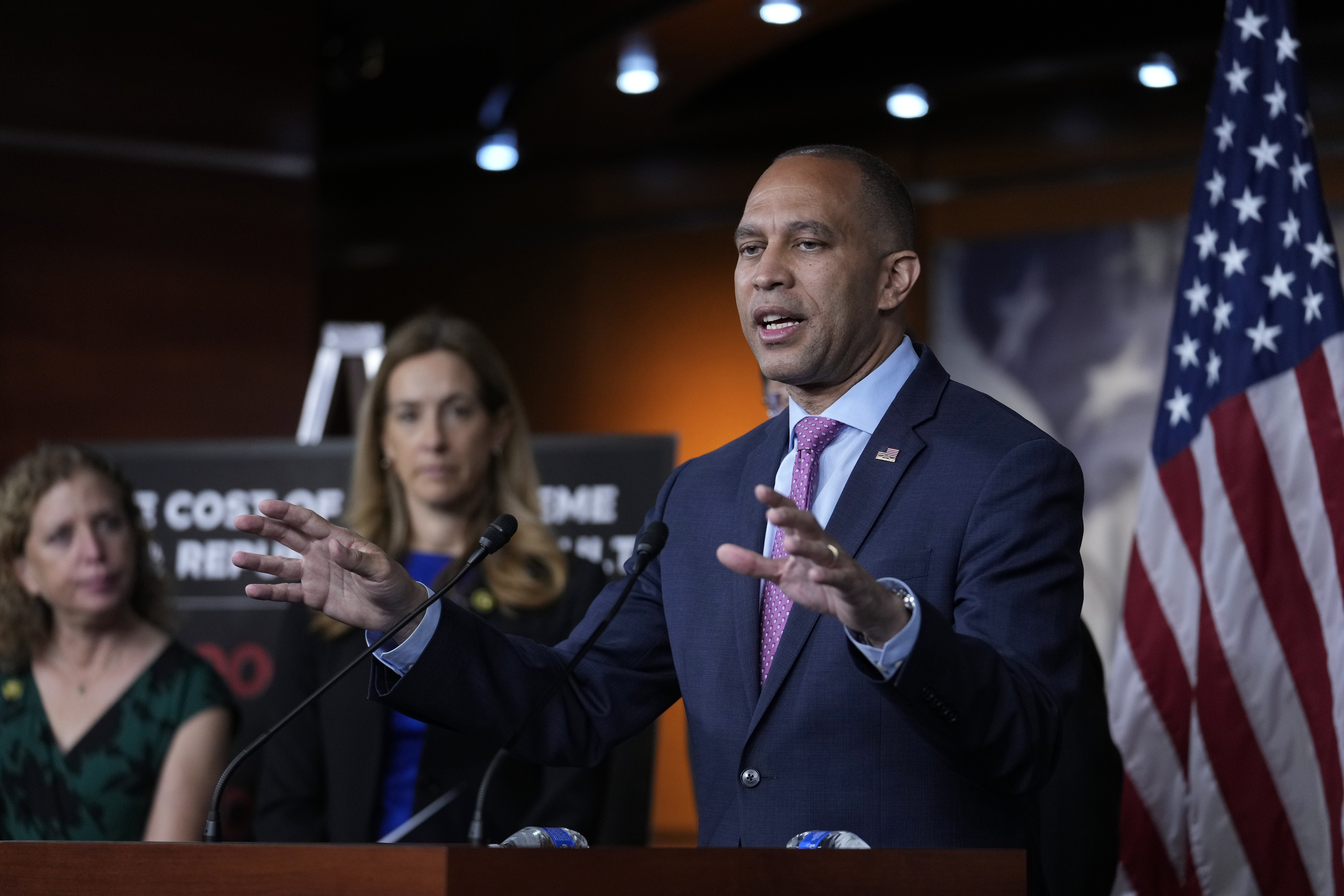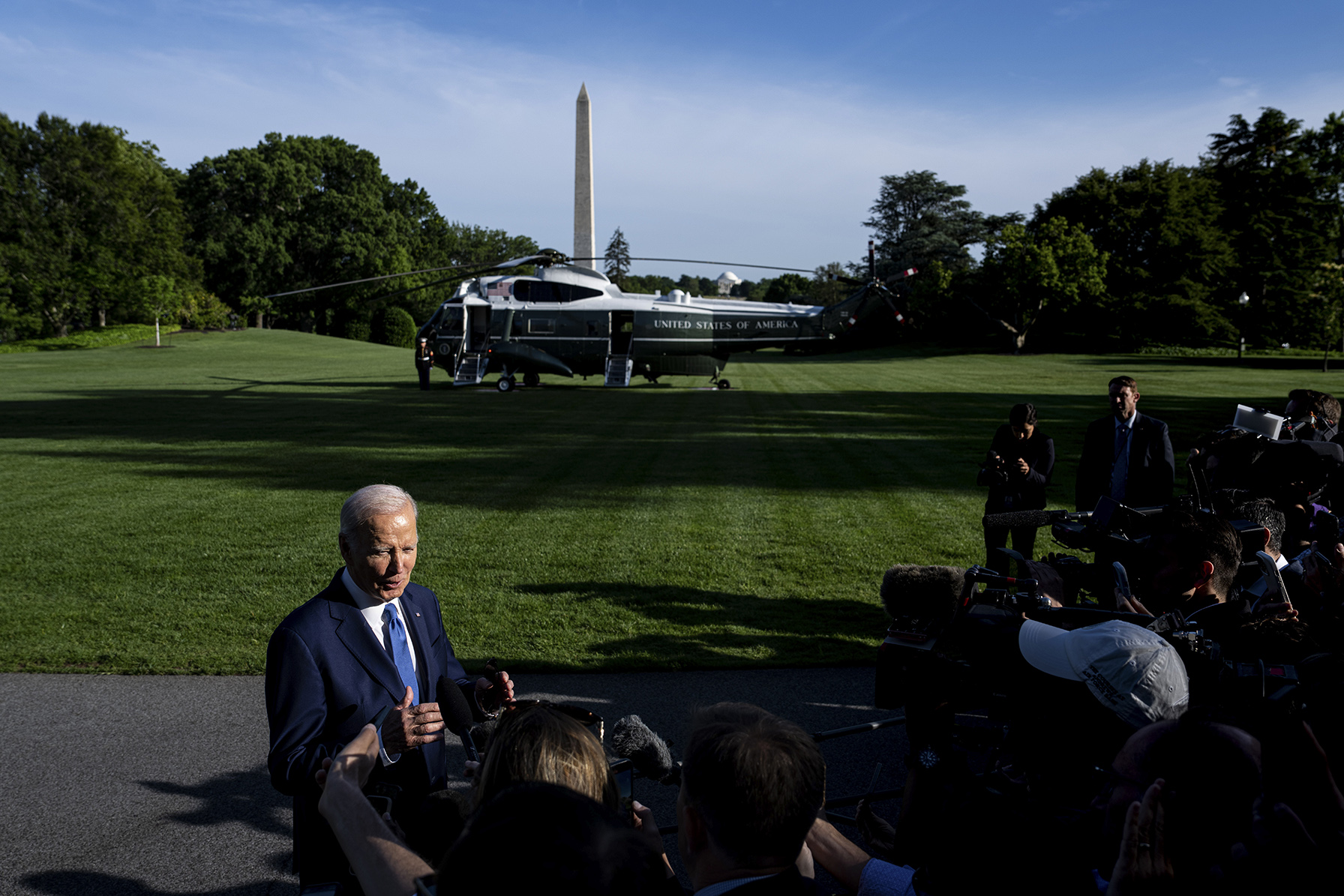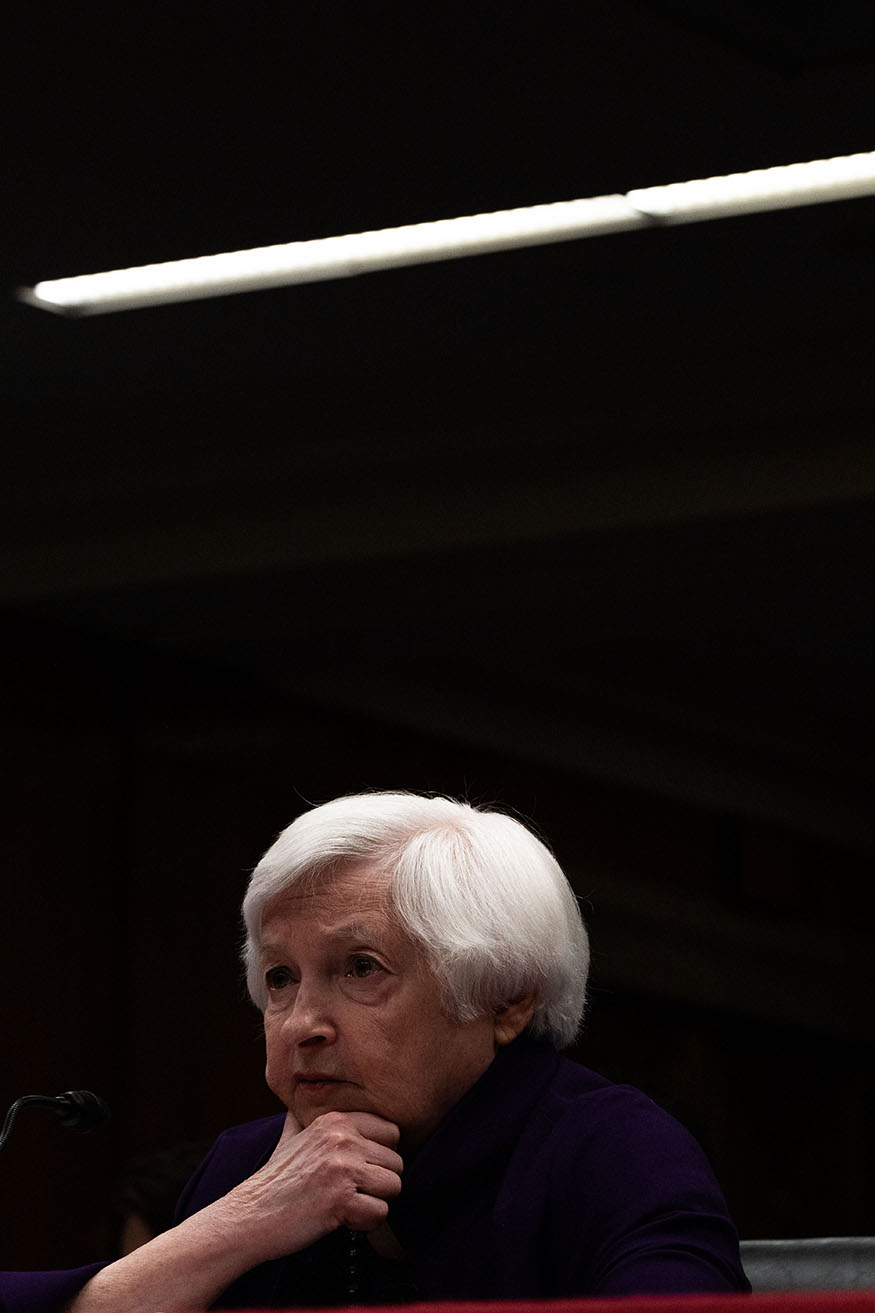WASHINGTON -- President Joe Biden said a deal to resolve the government's debt ceiling crisis seemed "very close" late Friday, even as the deadline for a potentially catastrophic default was pushed back to June 5 and seemed likely to drag negotiations between the White House and Republicans into another frustrating week.
The later "X-date," laid out in a letter from Treasury Secretary Janet Yellen, set the risk of a devastating default four days later than an earlier estimate. It came as Americans and the world watched with concern over the prospect of brinkmanship throwing the U.S. economy into chaos and sapping world confidence in the nation's leadership.
The new default date should not be seen as a reprieve, but rather a more firm deadline that "ensures the urgency" of reaching a deal within days, said Rep. Patrick T. McHenry, R-N.C., one of the key GOP negotiators. "We're within the window of being able to perform this, and we have to come to some really tough terms in these closing hours," he told reporters Friday evening.
Biden was upbeat as he left for the Memorial Day weekend at Camp David, declaring, "It's very close, and I'm optimistic."
With Republicans at the Capitol talking with Biden's team at the White House, the president said, "There's a negotiation going on. I'm hopeful we'll know by tonight whether we're going to be able to have a deal."
In a blunt warning, Yellen said failure to act by the new date would "cause severe hardship to American families, harm our global leadership position and raise questions about our ability to defend our national security interests." Anxious retirees were already making contingency plans for missed checks, with the next Social Security payments due next week.
Biden and Republican House Speaker Kevin McCarthy have seemed to be narrowing on a two-year budget-slashing deal that would also extend the debt limit into 2025 past the next presidential election.
Republicans have made some headway in their drive for steep spending cuts that Democrats oppose. However, the sides are particularly "dug in" over McCarthy's demands for tougher work requirements on government food stamp recipients that Democrats say is a nonstarter.
The White House is particularly resisting such measures, contending they could drive more people into poverty or take their health care, said a person familiar with the talks, who was granted anonymity to describe closed discussions.
Asked whether Republicans would relent on work requirements U.S. Rep Garrett Graves, R-La., insisted: "Hell no, not a chance."
UNCERTAIN HOLIDAY
Earlier Friday, McCarthy said his Republican debt negotiators and the White House had hit "crunch" time, straining to wrap up an agreement with Biden as lawmakers broke for the long Memorial Day holiday weekend. Lawmakers are tentatively not expected back at work until Tuesday, but now their return is uncertain.
Any deal would need to be a political compromise, with support from both Democrats and Republicans to pass the divided Congress. Failure to lift the borrowing limit, now $31 trillion, to pay the nation's incurred bills, would send shockwaves through the U.S. and global economy.
But many of the hard-right Donald Trump-aligned Republicans in Congress have long been skeptical of Treasury's projections, and they are pressing McCarthy to hold out. Some have been vocal at how little they say the deal appears to cut government spending overall -- especially because it would also give up their party's leverage on the debt ceiling until after the 2024 presidential election.
Rep. Ralph Norman, R-S.C., a top member of the far-right House Freedom Caucus, described what he has learned so far of the emerging deal as "watered down." Norman urged McCarthy to hew closely to the legislation that conservatives helped craft and pass last month, which raised the debt ceiling only into next year and coupled the increase with larger spending cuts than the two parties are now discussing.
"This is totally unacceptable, and it's not what we agreed to," Norman said.
Rep. Bob Good, R-Va., another House conservative, complained about reports that the deal would raise the debt ceiling by more money than the bill approved by the House. Good said the emerging deal would do so "for a whole lot less in return that we need from a policy standpoint, from a fiscal standpoint." He added: "And if that were true, that would absolutely collapse the Republican majority for this debt ceiling increase."
Asked by reporters about the criticisms on Friday, McCarthy said: "I'm not concerned about anybody making any comments right now about what they think is in or not in it. Whenever we come to an agreement, we'll make sure we will first brief our entire conference."
Since the beginning of the negotiations, McCarthy has been widely assumed to be able to lose the roughly three dozen members of the far-right House Freedom Caucus and still manage to pass the debt ceiling increase and retain his position as speaker. If he loses several dozen additional House Republican lawmakers, though, both the deal -- and his grip on power -- could be on shaky ground.
"These guys were never going to vote for it, so the question becomes how many of them you lose," one GOP strategist said, speaking on the condition of anonymity to describe internal dynamics.
'THE WORLD IS WATCHING'
While the contours of the deal have been taking shape to cut spending for 2024 and impose a 1% cap on spending growth for 2025, the two sides remain stuck on various provisions. The debt ceiling, now at $31 trillion, would be lifted for two years to pay the nation's incurred bills.
"The world is watching," said International Monetary Fund Managing Director Kristalina Georgieva after meeting Friday with Yellen. "Let's remember we are now in the 12th hour."
Weeks of negotiations between Republicans and the White House have failed to produce a deal -- in part because the Biden administration resisted negotiating with McCarthy over the debt limit, arguing that the country's full faith and credit should not be used as leverage to extract other partisan priorities.
"We have to spend less than we spent last year. That is the starting point," said McCarthy.
One idea is to set the topline budget numbers but then add a "snap-back" provision to enforce cuts if Congress is unable during its annual appropriations process to meet the new goals.
Over the Republican demand to rescind money for the Internal Revenue Service, it's still an "open issue" whether the sides will compromise by allowing the funding to be pushed into other domestic programs, the person said.
In one potential development, Republicans may be easing their demand to boost defense spending beyond what Biden had proposed in his budget, instead offering to keep it at his proposed levels, according to another person familiar with the talks.
The teams are also considering a proposal to boost energy transmission line development from Sen. John Hickenlooper, D-Colo., to facilitate the buildout of an interregional power grid.
McCarthy has promised lawmakers he will abide by the rule to post any bill for 72 hours before voting. The Democratic-held Senate has vowed to move quickly to send the package to Biden's desk
The White House has continued to argue that deficits can be reduced by ending tax breaks for wealthier households and some corporations, but McCarthy said he told the president as early as their February meeting that raising revenue from tax hikes was off the table.
While Biden has ruled out, for now, invoking the 14th Amendment to raise the debt limit on his own, Democrats in the House announced they have all signed on to a legislative "discharge" process that would force a debt ceiling vote. But they need five Republicans to break with their party and tip the majority to set the plan forward.
Information for this article was contributed by Mary Clare Jalonick, Stephen Groves and Farnoush Amiri of The Associated Press; and by Jeff Stein, Paul Kane, Rachel Siegel and Tony Romm of The Washington Post.

